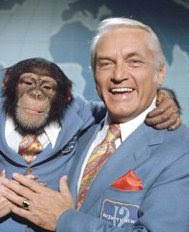nate33 wrote:It's really kind of tough for me to get very excited about any trades these days. The problem is, our team is pretty well-balanced right now. Normally, for a trade to look good for both teams, both teams need to give up a player where they're redundant, and receive a player that fills a need. Either that, or you need to trade a player that's not of the same general age group as your core, and get back another pick/prospect that's the same age as your core. (i.e. trading establlished vets for prospects in our case, with the other side willing to give us picks/prospects for our vets)
Unfortunately, with the Wizards, there are no glaring redundancies and no gaping holes to fill. The team is pretty balanced right now. There is no one spot that needs desperately to be addressed. We just need to get incrementally better at all positions. Likewise, we aren't in a position to trade a good young prospect for an established vet with lesser upside because we're rebuilding. And we don't have many established vets whom we can trade for prospects. Lewis is unmovable because of his contract. Yi, Thornton and Armstrong aren't good enough for any team to sacrifice value for them when they can be obtained as free agents this offseason.
The only guys whom we can even contemplate moving for value are Hinrich and Howard. And both are hurt. Howard might conceivably get healthy and be worth a 2nd round pick from a contender. Hinrich probably won't break back much more than an expiring contract and maybe some cash. Whoop de do. Our only real trade asset is our willingness to take on extra salary.
I think this is exactly correct with the possible exceptions being mostly what you mentioned at the end:
1) I wouldn't poo-poo the idea of a Hinrich for expirings trade that opens up the potential for something in a BOYD on the other side of the lockout. Hard to project, but there could be something there in an absorption trade, though even in shedding Hinrich, W-Chandler and J-Green type guys are probably out of our price range anyway.
2) We might not be looking at having all that much cap space in the summer of 2012 depending on a few things, so I'd be open to a bad 2013 contract if we're projecting to have, say, $7 million or less available at that time. The same reasoning works for Hinrich being traded next year as an expiring for a bad 2013 contract.
3) a cash saving or cash neutral trade; very tough to pull off in a way that helps our talent base given our trade pieces.
Other than those possibilities, I don't see anything either. The problem is being in position to make follow up moves in relation to the cap. To me, the answer to the "hey, should we go after established-player-X?" queries is pretty much "no" unless player-X is early in on his rookie deal; unfortunately, as mentioned previously, no one is going to dump a promising player early in on his rookie deal, so said talk is well nigh wheel spinning.
Basically, we need to either perform well in the draft while developing from within and/or calibrate things to where we have a specific moment where we can capitalize on a nice turnip patch of cap space and cook the upward trajectory with a decisive stroke (could be a signing, could be a consolidation trade). Ideally, it would be a bit of both, but a rational plan would be centered on those twin columns with proper execution being in the timing and the timing being contingent on an appreciation for the incentives involved in patience.
Right now, there's a few things converging to keep us from proper flexibility and really overruling a lot of options:
A) Rashard's mammoth contract (it is not likely to be $10 million in the last year either; that's the absolute minimum if he missed all of his performance incentives)
B) Nick's probable contract extension
C) Dray's contract
D) McGee's probable contract extension
Now, if we could work a buyout with Rashard to where all the money is trimmed off his partially guaranteed year (or if it's a super Allan Houston cap clearing amnesty provision) or we trade one of those homegrown guys for a cheaper option who's earlier on his rookie deal, that changes things, but if we're staying the course, we're more than a bit hog-tied. We're basically cheap, but it's not the same thing as being flexible. If Young gets the extension I think he's going to get ($7 million), we're not even going to have all that much cap space in the summer of 2012 either, so then you're looking at parsing things down to skeleton crew mode until the summer of 2013.
A lot of trades posted here now are consolidation trades, but it seems to me that we're too early in the process to expect to slap a semi-respectable difference maker onto a 25 win squad and have anything better than what tops out as a right pearly oyster of an early-ouster club. We're not one player away; we're especially not "one player who's actually available in a realistic trade" away. That situation is compounded based on the cap log jam above as consolidation trades almost always bring in veterans who make good money. We want a consolidation trade or a decisive free agent acquisition, but we want it later when we aren't an outright B-ball-debacle. If we add someone who's effectively spendy now, we've basically arrived at our final destination give or take a draft home-run in the mid round (I have no real faith in that working out, BTW).
What all that means is that anything other than a BOYD or cash shedding move in the short term is likely getting ahead of things and doesn't fit with a strategic vision. I also would come down very strongly against free agent acquisitions of the piddling variety if the money is long term enough to overlap with what would have been a bigger pool down the road. If you have $3 million available now, but you'll have $11 million next year, don't spend the $3 million on a multi year deal and turn the next year money into $7.75 million. That would be settling before we have to, which is fundamentally a no-no. It's very rare when teams dip into their cash in a slap-dash, shake-here/shake there manner and come away with something that doesn't sniff of Johan Petro. So, I say "no quality backups" on long term deals for now; not when we might not even have more than two above average starters.
Unless a long term opportunity presents itself, the best course of action seems to be the very boring option of doing nothing and patiently plugging away.























